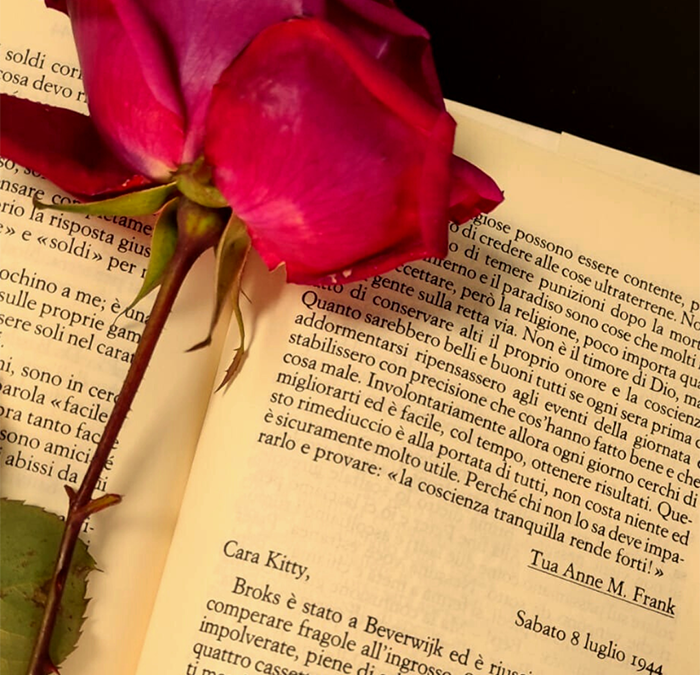«How nice and good everyone would be if every night before going to sleep they thought back over the day’s events and determined precisely what they did right and what they did wrong. Involuntarily then every day you try to improve yourself and it is easy, over time, to get results. This remedy is within everyone’s reach, costs nothing and is certainly very useful. Because those who do not know must learn it and try it, “Quiet consciousness makes strong!”»
(Anne Frank – Thursday, July 6, 1944)
We remember this day in the hope that history can teach us to love, to know love toward each other without discrimination of any kind: neither by race, nor by gender, nor by religious or sexual orientation whatsoever.
Little Anna, in her diary wrote, «Whoever is happy will make others happy as well.», probably the people who did this were not happy and therefore could not bring joy to others, only pain, sorrow, torture…and death.
Journals, books, articles, correspondence exchanges-why do we need to talk about this?
Because there is still learning to be done and the question of why.
The Shoah represents a watershed in modern culture, literature and jurisprudence.
In literature, because thanks to Raphael Lamkin, a new lemma was introduced into our language: Genocide, by which is meant «acts committed with intent to destroy, in whole or in part, a national, ethnic, racial or religious group.»
In Jurisprudence because at the Nuremberg Trials the principle of retroactivity was introduced regarding crimes against humanity, to condemn a crime unheard of until then, unparalleled in history.
In Modern Philosophy, Adorno, in 1949, states that “to write poetry after Auschwitz would be barbaric,” as if to emphasize the blockage of thought in the face of the scenario that opened up to the world at the end of World War II.
This made the recovery of the testimonies and consequently the recognition of the responsibility of the perpetrators essential. The witnesses were locked in silence for years because they were surrounded by a world that did not want to talk about them. Until someone took courage by giving others courage as well. Because it was impossible to carry such trauma within one’s soul. A trauma that by transgenerational transmission was passed on to the so-called “Children of the Shoah.” Children who can also be a means of resurrection.

